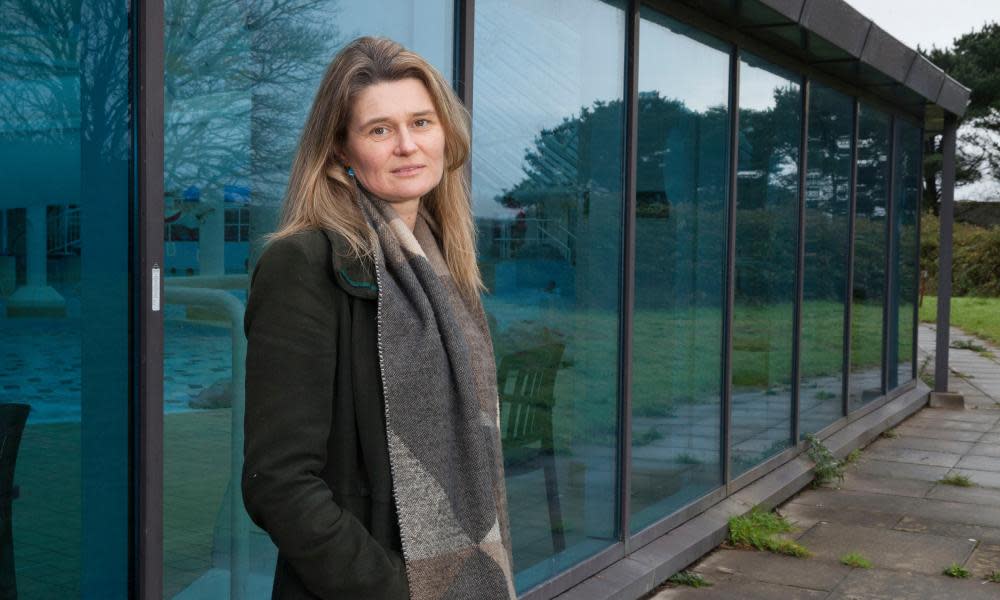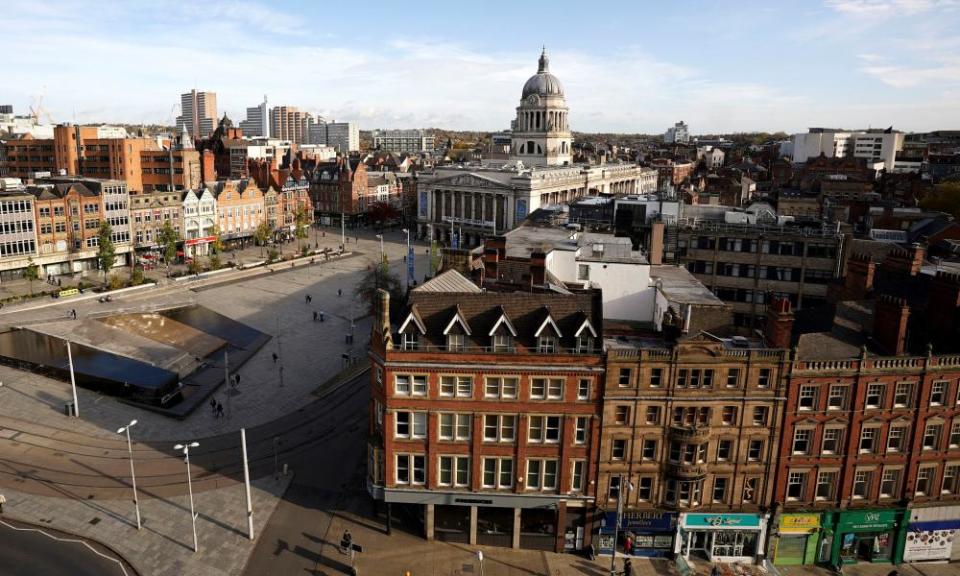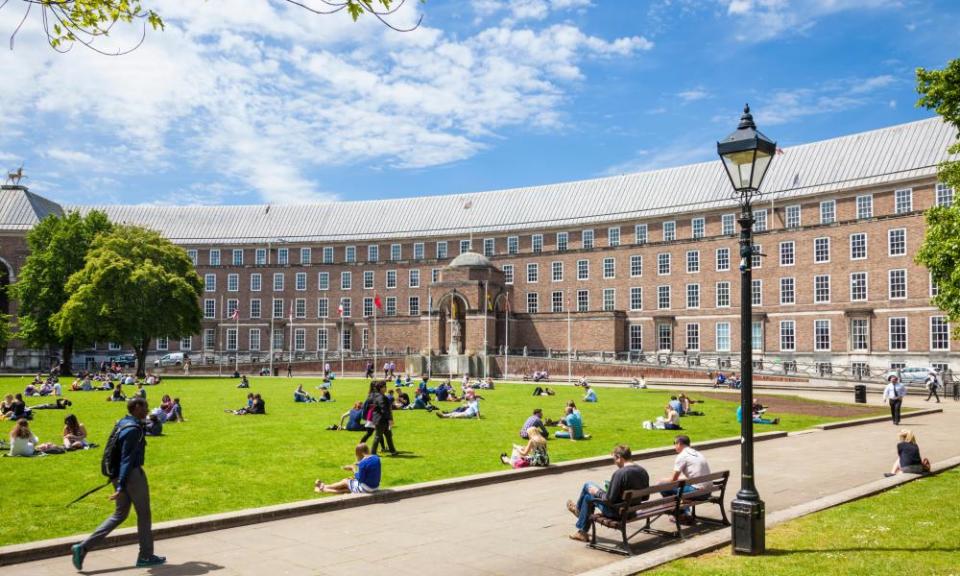‘Councils have been short-changed. We need more government money’

Craig Cheney sits slumped in his chair, with a look of dejection in place of his usually cheery demeanour. Bristol’s deputy mayor, who is also chair of the city council’s finance committee, needs to save £23m from next year’s budget – on top of almost £100m of cuts three years ago – to balance the books.
“We have ways of swallowing our own smoke if the only problem is inflation, but there are so many other extra costs that we need to cope with,” says the former business consultant turned Labour councillor. “It’s tough.”
It could have been worse. Until Rishi Sunak’s autumn budget, the gap in Bristol’s finances for next year was £41m, about 10% of the city’s day-to-day spending.
In Liverpool, deputy mayor Jane Corbett needs to find £34m of savings before next March’s deadline to present a balanced budget.
“We are living on parcels of money from the government,” says the long-time councillor, “and while we are grateful for the support we have had through the pandemic, our budgets for adult social care and children’s social care just cannot cope with rising demand.”

Like many other shire authorities, Lancashire council has also launched a search for savings, in its case of £43m. Thurrock in Essex, a Conservative-run unitary authority, is looking to cut one in four jobs and sell assets, including the Thameside theatre in Grays, to save £34m by 2024. Nottingham, which this year charged the highest Band D council tax to offset a large deficit, is battling to save £28m next year and avoid closing six children’s centres, with the loss of 91 jobs.
They are among hundreds of councils, run by the Tories or Labour, that are now wondering how to reconcile the chancellor’s message that austerity is over with shortfalls across the public sector that run into billions of pounds.
During the pandemic, the government has offered local authorities a financial lifeline. But since the spring and the end of the third lockdown, ministers have focused their generosity on capital spending, as part of a loosely defined agenda to level up the regions.
Locked up in various pots, including the towns fund and the “levelling-up” fund, is more than £8bn that councils can bid for if they are able to show tangible benefits from giving high streets and housing estates a facelift.
On the other hand, cash for statutory services, which must be kept separate from capital funds, is largely exhausted, at a time when rising prices and cuts to welfare payments are putting extra pressure on low-income households.
In the budget, about £1.6bn a year extra was promised to councils for the three years from 2022, though a proportion of this extra cash will come from a maximum annual 3% increase in council tax. This means the average household bill could rise to £2,074 by 2024-25, from £1,898 today.
Before the autumn budget, Sunak vowed: “What we’re going to see is absolutely no return to austerity. People are going to see very strong investment in public services.”
Michael Gove, secretary of state at the Department for Levelling Up, Housing and Communities (DLUHC), is currently locked in a battle with Sunak for more funds, but sources close to No 11 do not expect Gove to emerge waving a big cheque. They say the chancellor is resisting any increase in the three-year settlement agreed with Whitehall departments, pushing an announcement due last week towards Christmas or possibly the new year.
“The view from councils was that a big hitter had arrived in the shape of Michael Gove, but his silence is making people uneasy,” says Jonathan Carr-West, head of thinktank the Local Government Information Unit.
Proposals in Cornwall include cutting social worker jobs, despite both children’s and adult care services facing a surge in cases
Jayne Kirkham, a Labour member of Conservative-controlled Cornwall council, is angry that the county has been “short-changed by the government”. Cornwall is one of the poorest regions in Europe and before Brexit was a beneficiary of EU social funds. It had been due £100m a year over the next seven years from Brussels.
Having originally promised to replace the EU money lost to councils, the government instead opted to distribute cash through a new shared prosperity fund to “reduce inequalities between communities”. Cornwall has so far secured just £1m from this.
Capital funds for building roads and hospitals don’t, however, pay public sector wages. Before next April, Cornwall council plans to cut 410 posts, about 10% of all council jobs, as part of a draft scheme to close a £55m gap in the 2022-23 annual budget. Councillors will consider the plan at a meeting this week.
The Conservatives swept to power in Truro at elections in May this year after all six of Cornwall’s Westminster constituencies went blue on the coat-tails of Boris Johnson’s 2019 victory.
Kirkham says a mix of service reductions – including the closure of four swimming pools – a 3% council tax rise and a drive to outsource more operations to the private sector and charities will prove damaging.
“There simply needs to be more government money,” she says. “A 1% increase in council tax raises only £3m in Cornwall, so it is hard to see how the council can avoid increasing it by as much as it is allowed.”
Proposals include cutting social worker jobs, despite Cornwall’s new administration admitting that both children’s and adult care services face a surge in cases.
A report by the Institute for Fiscal Studies earlier this year showed that local authorities were the biggest losers from government austerity measures, suffering budget cuts between 2010 and 2020 of 40% once inflation was taken into account.

Corbett, who represents a Liverpool ward that ranks among the most deprived in the country, says that for her city those measures amounted to £450m in lost income. Now it “lives on central government handouts” that last a few months before they run out.
“When you find out in October that £6m is available to support the most vulnerable through the winter – and the money was only signed off a fortnight ago, yet must all be spent by March 2022 – you can see how difficult it is to plan and deliver services at the moment.”
Any improvements can only follow planning, and that is difficult when the government has yet to make its mind up on several important questions: the proportion of business rates that councils will be able to keep; how the system for funding local government will be agreed; and the results of a fair funding review.
The DLUHC said councils had benefited from more than £12bn over the past 18 months, “with more than £6bn available to spend as they see fit”. It added: “We have been clear that councils must not put taxpayers’ money at excessive risk and that local people will continue to have the final say on council tax, with the ability to veto excessive rises.”
Bristol is regarded as one of the Britain’s most desirable cities, and its population is increasing. But several districts inside the city boundaries rank among the poorest in the country, with a high proportion of families that need council services.

“We get lumped into the wealthier south of the country, which means Bristol’s specific issues go unrecognised,” says deputy mayor Cheney.
He has selected nine out of 47 high streets and parades of shops for financial support, to prevent a collapse in the number of retailers. But his capacity to do any more is constrained while business tax revenues are down and the government postpones giving details of how any extra funds will be distributed.
“We want to consult over the choices we will need to make,” he adds, “but that’s not possible, not when so much is undecided.”

 Yahoo Movies
Yahoo Movies 
